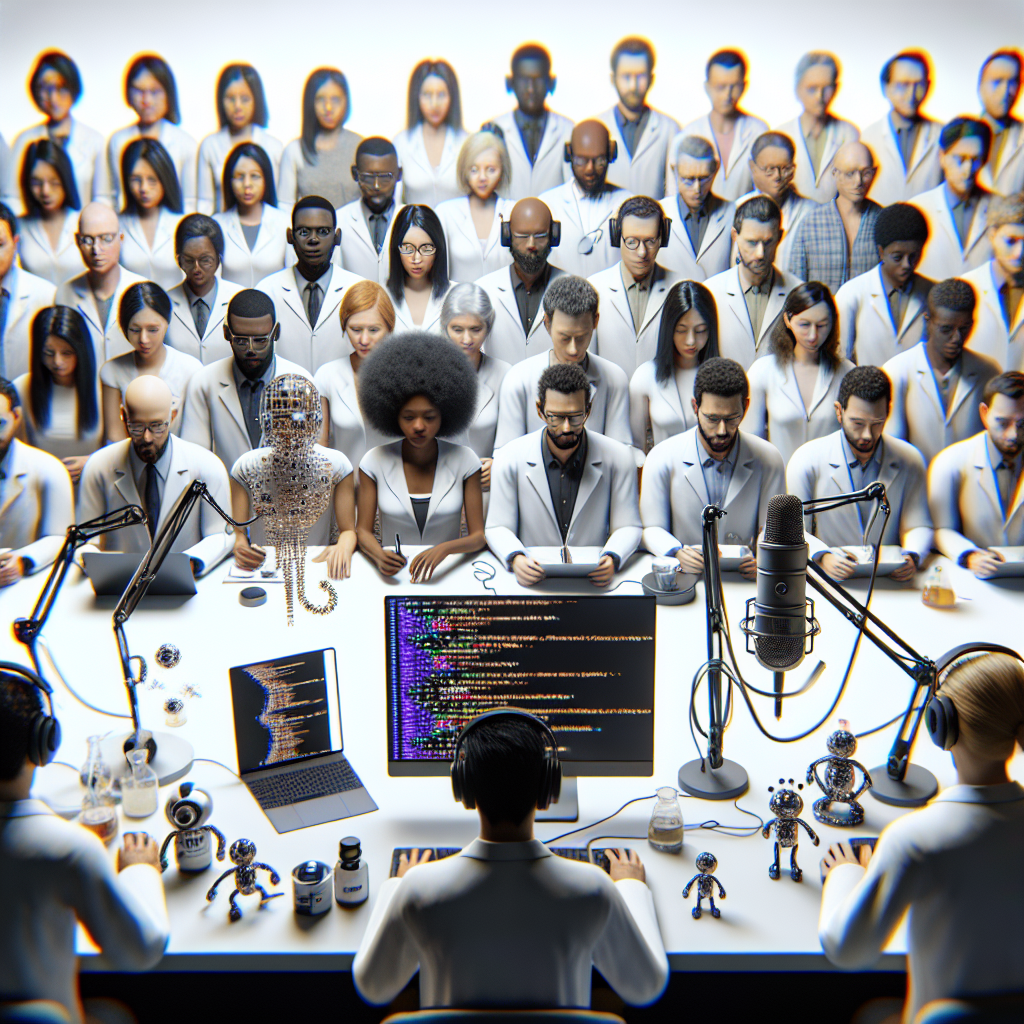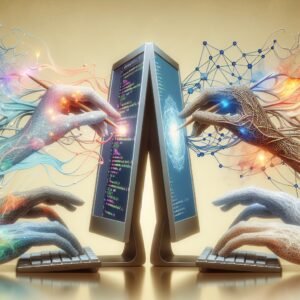Report: AI Trends Compiled – Copilot AI in Justice System, MINT Future, and Bias Concerns
Microsoft Copilot AI App for Multiple Devices
Microsoft has published its AI-powered Copilot app for Apple devices, following its release for Android gadgets. This free app allows access to GPT-4 and the text-to-image generator DALL-E 3 without the need for registration. Surprisingly, the app can also be downloaded on Macs with Apple Silicon even if it is officially designed for iOS and iPadOS. Without signing up, users can query and receive five answers per thread, while generating images and increasing to 30 answers per thread requires an account. Copilot supports text entry, photo, and voice inputs. However, complete chat histories can’t be saved at the moment. Its launch sets it in direct competition with OpenAI’s official ChatGPT app, which, while offering GPT-4 in a paid Plus subscription, is not available for Mac. Copilot has already been integrated into Windows and Office applications by Microsoft.
AI in the Judicial System: US Supreme Court Chief Justice’s Perspective
In his annual report, US Supreme Court Chief Justice John Roberts addressed the role of AI in the judicial system. He foresees substantial impacts of AI on court proceedings, emphasizing the necessity of human judges as legal decisions often contain gray areas that require human discernment. Despite this, Roberts affirms the potential of AI in improving access to crucial information for lawyers and laymen, thereby facilitating broader access to the law. However, he cautions about associated risks and “illusions” regarding AI implementation in justice, as evidenced by cases involving Michael Cohen and other lawyers who generated false citations and information using ChatGPT. Roberts subsequently urges “caution and modesty” in AI adoption in the judicial system to prevent dehumanizing the law.
Declining Importance of MINT Subjects Due to AI
Christopher Pissarides, a Nobel Prize laureate and economics professor from the London School of Economics, warns against the declining importance of MINT subjects (Mathematics, Informatics, Natural Sciences, and Technology) due to AI automating many analytical tasks. Pissarides advises prospective students to reconsider their choices, as the skills currently required for developing AI might become obsolete in the future. The professor even refers to “sowing the seeds of self-destruction” in some IT careers. In contrast, empathic and creative skills in areas such as communication, customer service, and healthcare actions, which are less easily replaced by AI, are expected to become more significant in the future.
AI Impact on Jobs and the Job Market
Recent studies have predicted widespread changes in the job market due to AI. An OpenAI study from March demonstrated that large language models with access to tools could influence the work of at least ten percent of around 80 percent of US workers. The Pew Research Center forecasted in August 2023 that AI could significantly influence or even destroy 19 percent of jobs.
AI Gender Bias Concerns
A University of Michigan study suggests that specific AI models tend to perform better in gender-neutral or male roles in comparison to female roles. Researchers analyzed the responses from three popular AI systems – Flan-T5, LLaMA2, and OPT-instruct – to 2,457 questions across 162 different roles, including “lawyer,” “mentor,” and “partner”. Out of 50 interpersonal roles deemed male, female, or gender-neutral, gender-neutral terms and male roles yielded better results than female roles. The study raises concerns about the programming and training of AI systems, as the used training data might unintentionally reinforce societal biases. These concerns regarding distortions are frequently addressed in AI ethics discussions. The research team has not yet examined OpenAI’s GPT-4.
Conclusion: AI’s Promising Development and Societal Impact
The ever-evolving world of AI presents many promising developments, but also prompts crucial questions regarding the role of AI and its implications for societies, work, and leisure. As AI continues to transform our world, it is essential to remain vigilant to its potential biases and impacts on our everyday lives.






















